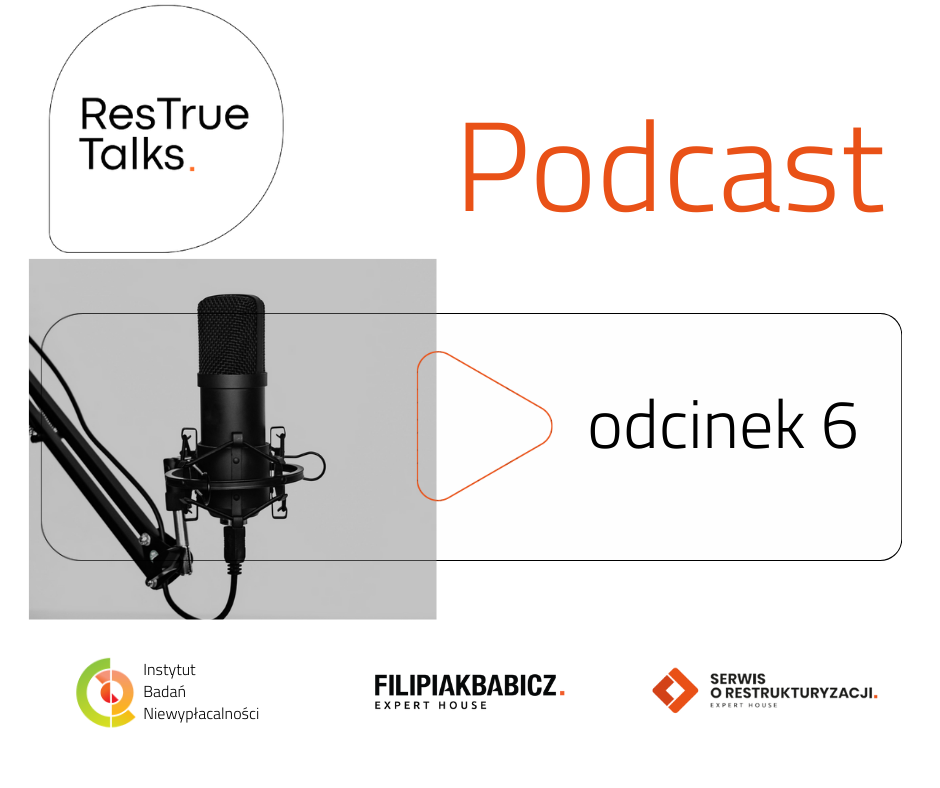
Execution of pauliana against a fallen third person – problematic issue

Recently, I have encountered the problem of transferring funds to the bankruptcy estate pursuant to Art. 134 BRL in a situation where they were the subject of an ineffective legal act, and in the meantime, the bankruptcy of a third party obligated to return was declared.
Facts
The actual state of affairs could therefore be such that the debtor has transferred, for example, under a donation agreement or an inequivalent agreement, money to a third party. Then the debtor was declared bankrupt, and the receiver (let’s call him the receiver 1) stated that the donation was legally ineffective (Art.127 (1) pu) or could be considered ineffective (Art.527 of the Civil Code) and obtained a decision ordering the transfer of this cash to the bankruptcy estate (art. 134 par. 1 and 1a of the pu).
Then a third party was declared bankrupt.
Legal problem
Obviously, the receiver 1 has the right to demand a return from the receiver of a third party (receiver 2). However, it is not clear in what mode the receiver 2 is to do so in order to keep the satisfaction of the receiver 1 first (Art.532 of the Civil Code). It is obvious that the actio pauliana should be settled with priority over the third party’s creditors.
Solutions rejected
The trustee in bankruptcy 1 may not carry out enforcement against a third party’s bankruptcy estate in the face of a clear prohibition under Art. 146 paragraph. 3 BRL The trustee in bankruptcy is also not obliged to pay this amount as the cost of the proceedings or other liability of the estate – Art. 230 bp it does not include liabilities arising before the declaration of bankruptcy (this also applies to liabilities due to unjust enrichment).
Notification on the list of monetary claims (although remember that the trustee 1 in fact demands “transfer to the mass”, which only with money and due to their nature equates to the obligation to pay, not release) is also not a good solution. There is no regulation that would allow this claim to be privileged. The current first category (Article 342 (1) (1)) includes socially justified privileges (including alimony, pensions and sickness compensation, remuneration for work), systemically (activities in restructuring proceedings) and state budget (social security contributions). Thus, such a claim should be included in the second category, which is fundamental and non-privileged.
The receiver of the third party also has no grounds to grant priority under the right of separation. The provisions on satisfaction under a separate division plan could be taken into account by analogy – despite many doubts – only in a situation where the trustee disposes of 2 property which is the subject of an ineffective act. Then the law of the paulian creditor (receiver) could be treated as the right “incumbent on” this property (art. 51 section 1 point 5, art.336 section 1, art. 345 section 1 pu), which expires, but the creditor of which retains a satisfaction preference. In the case at hand, however, the receiver 2 does not dispose of anything, so there is no basis for creating a separate distribution plan.
Proposed solution
It’s constructive now. In my opinion, the correct solution is to apply the provisions on exclusion from the bankruptcy estate (Art. 70 et seq. Of the Act). The effect of the declaration of the debtor’s bankruptcy itself (ineffectiveness of the ipso iure – by virtue of the law itself, e.g. Art.127 (1) pu) or a decision declaring the action ineffective (ineffectiveness by virtue of a constitutive court decision, e.g. Art.527 of the Civil Code) is deprived of its effects legal actions by which the property of the debtor was disposed of. Therefore, we treat the subject of this activity (real estate, movable property, law, including money) as the property of the debtor and not of a third party. Obviously, the effects of ineffectiveness are limited to the debtor’s bankruptcy proceedings in terms of subject, object and time. Erga omnes this item still belongs to a third party (it is its property), despite the normative assignment of it to the debtor’s bankruptcy estate in order to satisfy his creditors.
If this is the case, then the receiver 1 would be entitled to demand that the exempted property be handed over to him (Article 72 of the BRL). This direction of interpretation was suggested by the Supreme Court in its judgment of 11 February 2016 (V CSK 321/15, rapporteur K. Weitz). The Supreme Court rightly found that the obligation to transfer to the mass under Art. 134 sec. 1 p.u. does not constitute a non-pecuniary obligation, which is transformed into a pecuniary obligation pursuant to art. 91 paragraph. 2 BRL If this were to be assumed, all claims for exclusion from the estate would be neutralized, including classic debt recovery requests (Article 222 § 1 of the Civil Code). As in third party bankruptcy proceedings there are no instruments ensuring preferential satisfaction to the debtor’s creditors for whom the receiver is acting 1, it is justified to retain the full force of Art. 134 sec. 1 of the BRL, excluding property from the estate 2 and transferring it to the bankruptcy estate 1.
This is not prevented by the fact that cash in a given factual state cannot be individualized and is not separate from other components of the mass. In the event of ineffectiveness, due to the special source of the trustee’s entitlement – art. 134 sec. 1 p.u. – whose aim is to restore the state from before the fraudulent act, it is necessary to partially modify the guidelines of the Supreme Court from the judgment of 10/09/2015 (II CSK 536/14). Demanding that the funds obtained from the fraudulent activity be separated from other assets of the fallen third party not only would in practice exclude the possibility of using Art. 70 ff. (after all, a third party will not keep these funds on a separate bank account, but will probably transfer them to money circulation as soon as possible), it is still in vain to look for a normative justification for it. After all, the interest of the entitled person is not to receive the same money, but to receive a value expressed in money and corresponding to his demand. The same applies to things that are labeled as to species. I admit that I find no justification in the content and purpose of Art. 70 and 72 BRL to limit its practical application only to things and rights as to the identified identity. Especially that these regulations do not provide a hint such as, for example, in Art. 71 sec. 1 or 134 sec. 2 of the BRL, which directly refer to separated or separate property in the bankruptcy estate.
The subject of the exclusion from the bankruptcy estate pursuant to art. 70 p.u. it is defined generally and broadly (cf. judgment of the Supreme Court, V CSK 321/15). It can also be money, which can, after all, be separated from the bankruptcy estate in accordance with the guidelines of the Supreme Court from judgment II CSK 536/14. The obligated trustee 2 should therefore simply spend the appropriate amount on the official receiver 1, who must prove that he is entitled to them (Art. 72 of the BRL). Otherwise, there would be an absurd inconsistency in the system: in the event of two parallel bankruptcies, the receiver 1 could demand exclusion of the thing marked as to identity, but could not effectively demand the release of cash. In this way, the fraudulent complaint could be neutralized by “correct” selection of the object (cash) of the fraudulent activity.
Nor can there be agreement to a situation in which the creditors of the third party would be overly satisfied at the expense of the debtor’s creditors. As pointed out by the Supreme Court, they should not take advantage of the unjustified multiplication of the bankruptcy estate of a third party on the basis of an ineffective legal act in the light of bankruptcy regulations.













